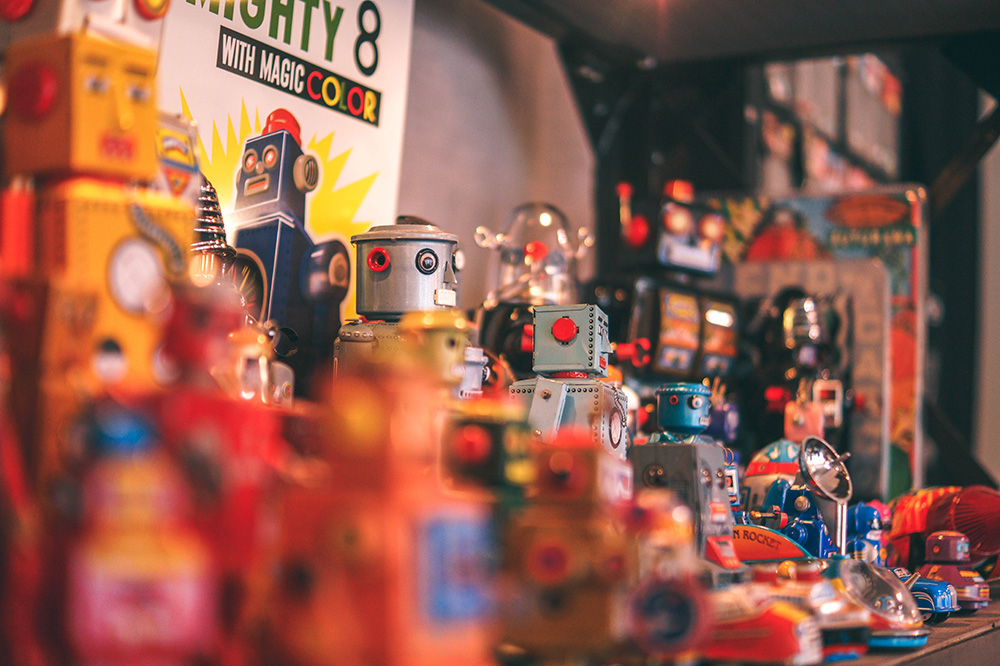On June 30, 2022, the paper “Should Social Robots in Retail Manipulate Customers?” by Oliver Bendel and Liliana Margarida Dos Santos Alves was published on arxiv.org. It was presented at the AAAI 2022 Spring Symposium “How Fair is Fair? Achieving Wellbeing AI” at Stanford University and came in third place in the Best Presentation Awards. From the abstract: “Against the backdrop of structural changes in the retail trade, social robots have found their way into retail stores and shopping malls in order to attract, welcome, and greet customers; to inform them, advise them, and persuade them to make a purchase. Salespeople often have a broad knowledge of their product and rely on offering competent and honest advice, whether it be on shoes, clothing, or kitchen appliances. However, some frequently use sales tricks to secure purchases. The question arises of how consulting and sales robots should “behave”. Should they behave like human advisors and salespeople, i.e., occasionally manipulate customers? Or should they be more honest and reliable than us? This article tries to answer these questions. After explaining the basics, it evaluates a study in this context and gives recommendations for companies that want to use consulting and sales robots. Ultimately, fair, honest, and trustworthy robots in retail are a win-win situation for all concerned.” The paper will additionally be published in the proceedings volume of the symposium by the end of summer. It can be downloaded via arxiv.org/abs/2206.14571.
Best Presentation Awards at AAAI 2022 Spring Symposium
The AAAI 2022 Spring Symposium “How Fair is Fair? Achieving Wellbeing AI” was held March 21-23, 2022 at Stanford University. In the Best Presentation Awards, Oliver Bendel and Liliana Alves took 3rd place (“Should Social Robots in Retail Manipulate”), and Martin Spathelf and Oliver Bendel took 2nd place (“The SPACE THEA Project”). In 1st place was Hiroaki Hamada (“AI agents for facilitating social interactions and wellbeing”). Oliver Bendel had won first place at the AAAI 2019 Spring Symposium “Interpretable AI for Well-Being: Understanding Cognitive Bias and Social Embeddedness” with his paper “Are Robot Tax, Basic Income or Basic Property Solutions to the Social Problems of Automation?”, along with two other researchers and their teams. Both symposia – from 2019 and from 2022 – were hosted by Takashi Kido and Keiki Takadama from Japan. They are among the pioneers in the field of Responsible AI.
Social Robots at Stanford University
The paper “Should Social Robots in Retail Manipulate Customers?” by Oliver Bendel and Liliana Margarida Dos Santos Alves was accepted at the AAAI 2022 Spring Symposia (Stanford University). The two authors will present it at the end of March 2022 at the symposium “How Fair is Fair? Achieving Wellbeing AI”. From the abstract: “Against the backdrop of structural changes in the retail trade, social robots have found their way into retail stores and shopping malls in order to attract, welcome, and greet customers; to inform them, advise them, and persuade them to make a purchase. Salespeople often have a broad knowledge of their product and rely on offering competent and honest advice, whether it be on shoes, clothing, or kitchen appliances. However, some frequently use sales tricks to secure purchases. The question arises of how consulting and sales robots should ‘behave’. Should they behave like human advisors and salespeople, i.e., occasionally manipulate customers? Or should they be more honest and reliable than us? This article tries to answer these questions. After explaining the basics, it evaluates a study in this context and gives recommendations for companies that want to use consulting and sales robots. Ultimately, fair, honest, and trustworthy robots in retail are a win-win situation for all concerned.” More information about the AAAI 2022 Spring Symposia is available here.
Cobots in Healthcare
After several postponements, the symposium “Applied AI in Healthcare: Safety, Community, and the Environment” will be held within the AAAI Spring Symposia on March 22-23, 2021. One of the presentations is titled “Co-Robots as Care Robots” (co-robots are also called cobots). The authors of the paper are Oliver Bendel, Alina Gasser, and Joel Siebenmann. From the abstract: “Cooperation and collaboration robots, co-robots or cobots for short, are an integral part of factories. For example, they work closely with the fitters in the automotive sector, and everyone does what they do best. However, the novel robots are not only relevant in production and logistics, but also in the service sector, especially where proximity between them and the users is desired or unavoidable. For decades, individual solutions of a very different kind have been developed in care. Now experts are increasingly relying on co-robots and teaching them the special tasks that are involved in care or therapy. This article presents the advantages, but also the disadvantages of co-robots in care and support, and provides information with regard to human-robot interaction and communication. The article is based on a model that has already been tested in various nursing and retirement homes, namely Lio from F&P Robotics, and uses results from accompanying studies. The authors can show that co-robots are ideal for care and support in many ways. Of course, it is also important to consider a few points in order to guarantee functionality and acceptance.” More information about the AAAI Spring Symposia is available at aaai.org/Symposia/Spring/sss21.php.
Care Robots in Practice
The paper “Co-Robots as Care Robots” by Oliver Bendel, Alina Gasser and Joel Siebenmann, accepted at the AAAI 2020 Spring Symposium “Applied AI in Healthcare: Safety, Community, and the Environment”, can be accessed via arxiv.org/abs/2004.04374. From the abstract: “Cooperation and collaboration robots, co-robots or cobots for short, are an integral part of factories. For example, they work closely with the fitters in the automotive sector, and everyone does what they do best. However, the novel robots are not only relevant in production and logistics, but also in the service sector, especially where proximity between them and the users is desired or unavoidable. For decades, individual solutions of a very different kind have been developed in care. Now experts are increasingly relying on co-robots and teaching them the special tasks that are involved in care or therapy. This article presents the advantages, but also the disadvantages of co-robots in care and support, and provides information with regard to human-robot interaction and communication. The article is based on a model that has already been tested in various nursing and retirement homes, namely Lio from F&P Robotics, and uses results from accompanying studies. The authors can show that co-robots are ideal for care and support in many ways. Of course, it is also important to consider a few points in order to guarantee functionality and acceptance.” Due to the outbreak of the COVID-19 pandemic, the physical meeting to be held at Stanford University was postponed. It will take place in November 2020 in Washington (AAAI 2020 Fall Symposium Series).




